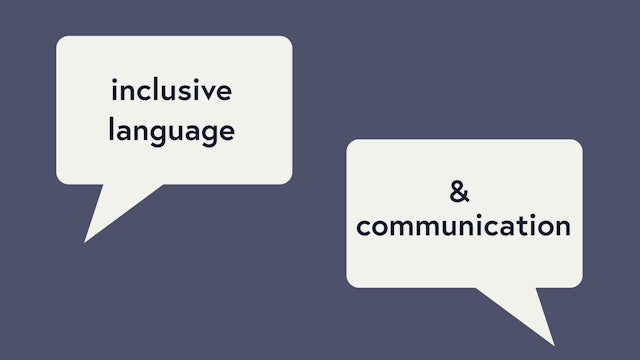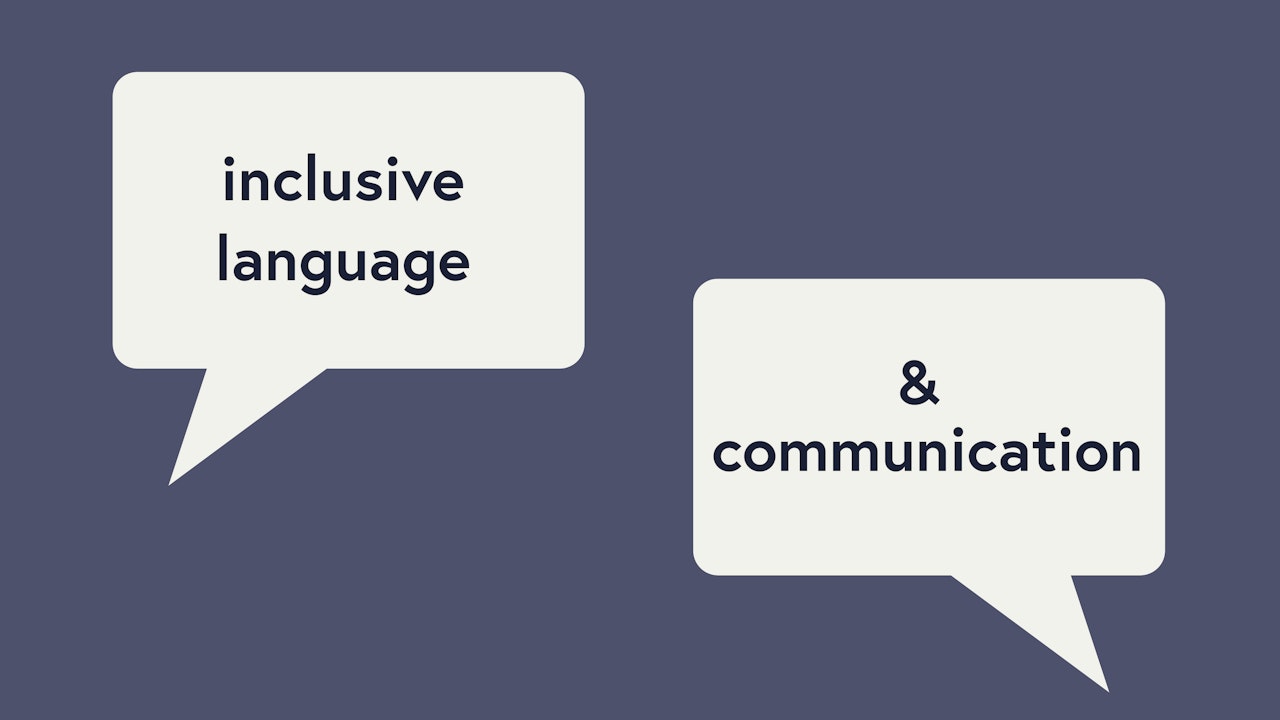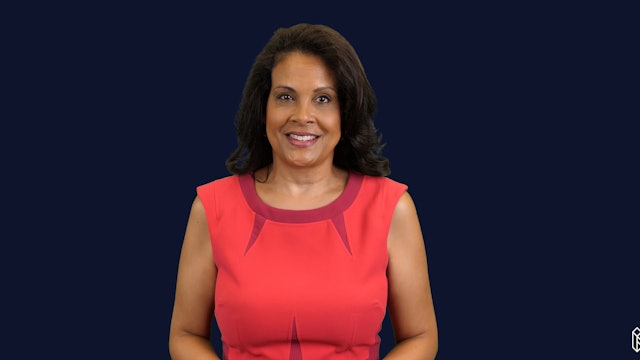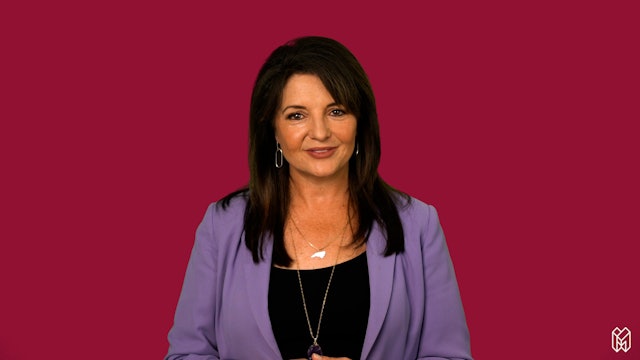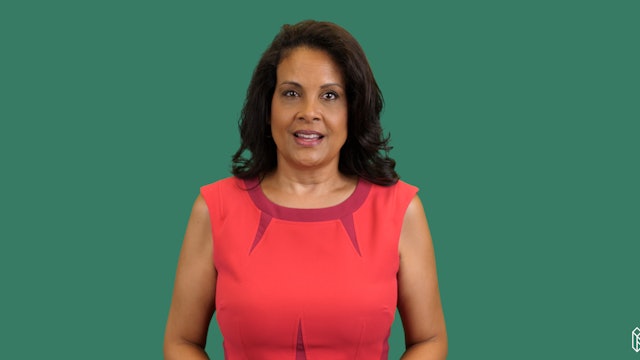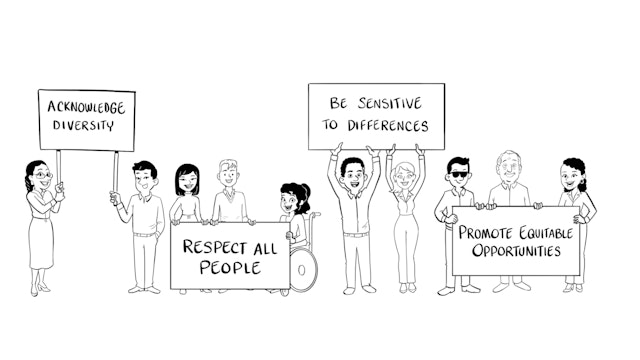-
Culture Shock: Navigating Ideological Differences Between Your Employees
Ideological differences between coworkers can create rifts in the workplace. However, there are ways of navigating them with kindness and understanding. In this video, we discuss some of these tactics.
-
Inclusive Language for People of All Ages
Here is common sense guidance for what language to use when speaking about the topic of age. Get up-to-date on what words are considered respectful when speaking to or about others, and avoid injecting age into a conversation or comment when the topic is irrelevant.
-
Current Trends Around Inclusive Language
Inclusive language is an ever-evolving subject. Learn why Roxanne equates inclusive language to practicing yoga and how it's important to view it as a journey rather than a destination.
-
Should I Capitalize White?
Understand why capitalizing terms for race or ethnicity communicates respect, and how to use language as a tool for positive change.
-
What Should I Call Someone With Dwarfism?
When used in a nonmedical sense, the term “dwarf” can be highly offensive. Learn the appropriate way to refer to someone who has been medically diagnosed with dwarfism, and how you can foster a workplace that is safe and inclusive for all people.
-
How to Fix a Communication Error
Be prepared to repair the damage caused by communications problems with this valuable, expert advice. Know what to do next to make things right if your company has unintentionally offended employees or clients by something you’ve said -- or failed to say -- in your corporate communications.
-
Is Inclusive Language Different from Political Correctness?
Understand how inclusive language differs from political correctness, and why it is a more effective communication style for strengthening your workplace culture.
-
Communicating to Acquire Top Talent
From job postings to interview processes, it's critical that every step of the recruitment process is inclusive and equitable so that your company can recruit and retain the best talent. Learn tips and tricks for inclusive hiring.
-
How Can I Prepare For Difficult Conversations?
When you’re approaching difficult conversations, it’s important to understand why they’re difficult. Then, arm yourself with information, whether it’s learning to speak more inclusively, addressing your own unconscious biases, or confronting your privilege.
-
How Do I Avoid Offending People?
Language is evolving. We should be mindful of the ways we speak at work to avoid offending others, particularly if we are identifying people by race, gender, or other distinguishing characteristics.
-
Implementing Broad Inclusion Policies and Practices
Learn some basic ways that your organization can be more inclusive to folks in the LGBTQ+ community, including updating forms, encouraging the use of pronouns, and highlighting Pride beyond June.
-
What Does Casual Discrimination Look Like?
Casual discrimination is a rampant issue, affecting all people at some point in their lives and many people every day. Bias and microaggressions can take multiple forms, from unwelcome questions to simply going unacknowledged. Learn how to identify and combat casual discrimination at work.
-
Inclusive Language for Religion
Benefit from this insightful analysis of what language to use when referencing a person’s religion. Recognize that people have complex cultural and religious identities and avoid the pitfall of making assumptions before you speak.
-
What Does Hispanic Mean?
The term Hispanic is meant to be an inclusive expression to describe Spanish-speaking people all around the world. You may meet Hispanic people from Spain itself, from Latin America, and/or the Philippines.
-
What Are Some Best Practices for Navigating Courageous Conversations?
Learn why setting ground rules for courageous conversations is so important as well as some examples of rules that you can adapt to your organization.
-
3 Mistake to Avoid When Communicating with People with Intellectual Disabilities
If you’re not experienced at communicating with people with intellectual disabilities, you may be worried you’ll say the wrong thing. Learn from these common mistakes to avoid making them yourself.
-
How Do I Respectfully Ask About Someone's Heritage and Culture?
Follow this helpful guidance for asking others about their family backgrounds. Learn whether and when to ask about a person’s heritage and culture, how to avoid awkward or intrusive questions, and how to ask with respect for their feelings and privacy.
-
What Do I Call Someone Who's Black?
Understand how language has evolved over the years in reference to Black people, and learn the most respectful ways to refer to someone who’s Black.
-
Inclusive Marketing for People with Disabilities
People with disabilities make up a larger portion of the U.S. population and an even larger portion of the world population. Neglecting this market segment is a miss for all companies. Learn why inclusive marketing is so important and how to implement it properly.
-
Communicating Effectively with People with Intellectual Disabilities
Benefit from these helpful best practices for communicating and collaborating effectively with people with intellectual disabilities. Learn how to adapt your communication style to fit the needs of your colleagues.
-
Rules of Inclusive Language
Being a welcoming and inclusive organization means consciously working to find ways to name, honor, and value experiences and identities. Increasing the inclusivity of our language addresses the way that language often unconsciously makes assumptions about people. Here are a few rules to follow t...
-
How Should I Refer to People Who Have Intellectual Difficulties?
When referring to a person with intellectual difficulties, it’s important to choose your words carefully. Keep the conversation centered around their individuality, as opposed to their condition. Here are some tips for using inclusive, supportive language.
-
Is it Okay to Ask Someone if They Have Autism?
Understand why it’s overly personal and inappropriate to ask someone about their medical conditions, including whether they have Autism Spectrum Disorder, or ASD. Medical and psychological conditions are deeply personal topics that many people don’t feel comfortable discussing.
-
How To Be an LGBTQ+ Ally
Approximately 7% of people in the U.S. identify as LGBTQ+. Here are a few steps you can take to act as an ally to your LGBTQ+ colleagues, employees, friends, family members, and more. These tips will help you create real change in the world around you.

